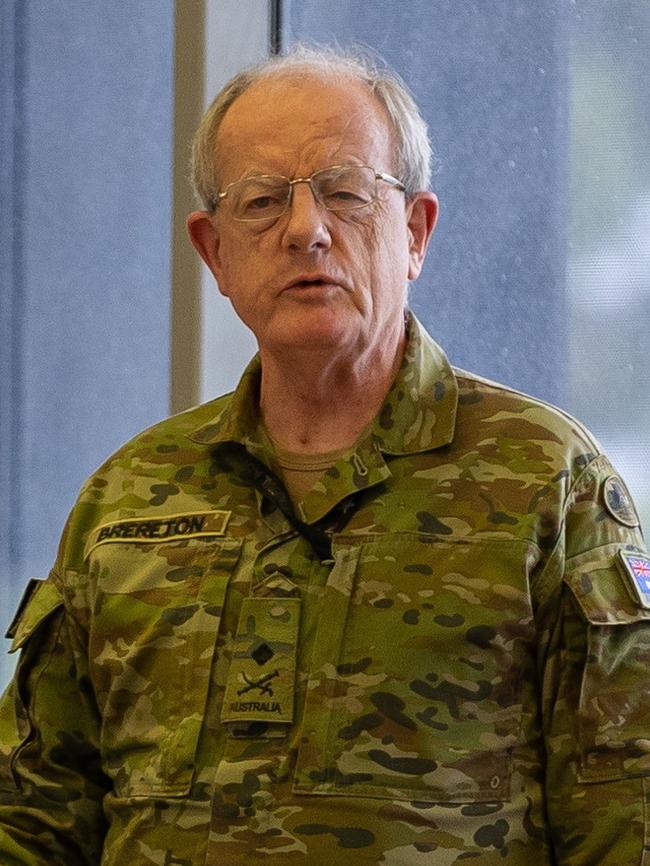Reform call for ADF watchdog amid criticism over ties to commanders
The military watchdog that ruled the ADF’s most senior officers were not accountable for war crimes by Australian soldiers in Afghanistan is seen as ‘umbilically linked’ to Defence’s command structure.

You can now listen to The Australian's articles. Give us your feedback.
The military watchdog that ruled the ADF’s most senior officers were not accountable for war crimes by Australian soldiers in Afghanistan is widely seen as being “umbilically linked” to Defence’s command structure, according to a report the government tried to suppress.
The 20-year review of the Inspector General of the Australian Defence Force recommends sweeping changes to the organisation to make it independent.
The 141-page report was tabled in parliament by independent Senator Jacqui Lambie after it was inadvertently published by the Royal Commission into Defence and Veteran Suicide.
Defence Minister Richard Marles received the report six months ago but refused to release it, arguing it couldn’t be made public in its current form.
The independent review by former attorney-general and Federal Court judge Duncan Kerr recommends new legislation to re-establish the IGADF as a separate entity in the Defence portfolio, answerable to the Governor-General.
The IGADF is currently under the command of Chief of the Defence Force David Johnston and is located within a Department of Defence facility in Canberra.
In his review of the organisation, Justice Kerr said the IGADF had many “well-motivated critics” who held “a perception that the IGADF is ‘umbilically-linked’ to the command structure of the ADF”.
“The existence of that perception is too widely-based as would permit it to be ignored,” he said.
“By providing those who serve in the ADF and their families independent assurance that abuses of military discipline brought to attention will be investigated without fear or favour, the office of the IGADF will fulfil its function.”
Justice Kerr said there was no suggestion that the past or present IGADF had “ever suffered from a want of actual independence”, but argued the negative perceptions of the organisation needed to be addressed amid “heightened community expectations”.
He said too many inquiries into deaths or suicides of ADF personnel were conducted with “insufficient sensitivity” towards family members of those who died.
His report recommends the IGADF be appointed by the Governor-General for fixed seven-year terms, and those taking up the role be required to resign their military commissions.
It says the IGADF should be able to initiate its own investigations and undertake “hot audits” to examine ill-discipline and violations of military justice.

The report was tabled late on Tuesday – less than a week after Mr Marles stripped medals from up to nine former ADF commanders who were mid-ranking officers when Australian special forces soldiers murdered 39 Afghan civilians and prisoners.
The move shielded senior commanders, including former chief of defence Angus Campbell, from any accountability for the crimes, in line with the findings of the IGADF’s Afghanistan war crimes inquiry undertaken by Justice Paul Brereton.
Justice Brereton’s 2020 report said special forces commanders bore a “moral command responsibility and accountability” for the murders, but accountability did not extend to higher commanders including the head of Middle East operations – a post General Campbell held in 2011.
Senator Lambie said the suppression of the report, which was discovered on the royal commission’s website by Greens’ Senator David Shoebridge, was evidence of a high-level “cover-up”.
“We downloaded it, we printed it, and then we rang the royal commission to ask when the report was uploaded to the website – and an hour later it was gone,” the Tasmanian senator said.
“This shows again the cover-up culture in Defence and the government.”
The current inspector-general of the ADF, James Gaynor, has been in the role since December 2016. Justice Brereton, a former NSW Supreme Court Justice and Army Reserve Major General, was an assistant IGADF when he undertook his four year war crimes inquiry.
He has since been appointed by Anthony Albanese to run the government’s national Anti-Corruption Commission.
If you are a current or former ADF member or a relative in need of support, contact the Defence All-Hours Support Line on 1800 628 036 or Open Arms on 1800 011 046.







To join the conversation, please log in. Don't have an account? Register
Join the conversation, you are commenting as Logout